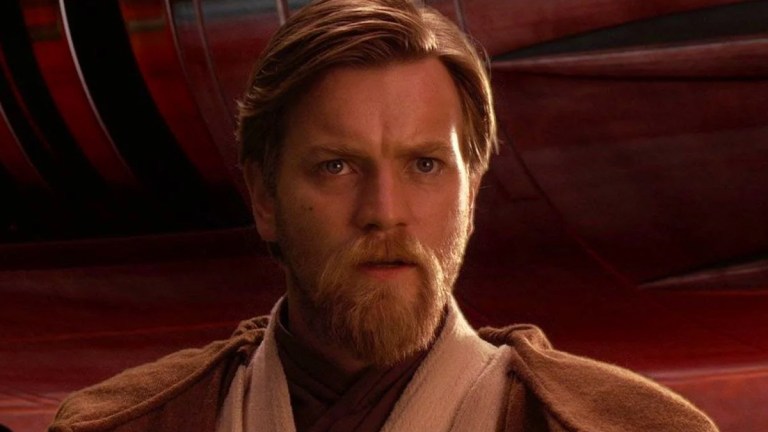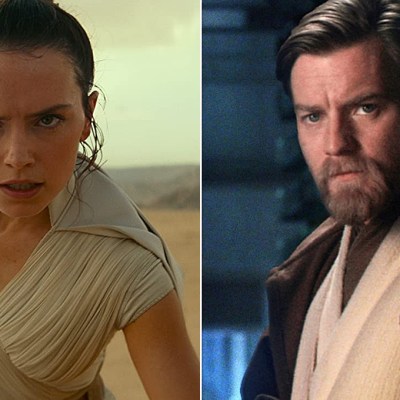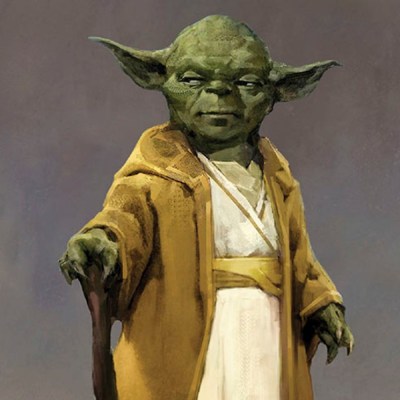Ewan McGregor Updates on the Star Wars Obi-Wan Kenobi Series, Possibility of a Standalone Season
An excited Ewan McGregor talks about his upcoming Star Wars return on the developing Disney+ Obi-Wan Kenobi TV series.

While an update on the Disney+ Star Wars Obi-Wan Kenobi spinoff series has been overdue for quite some time, new comments from its role-reprising headliner, Ewan McGregor, seem to imply that the show’s 2021-scheduled production still has the high ground over the proverbial Dark-Side-turned apprentice of delays.
McGregor paints an auspicious picture about the Obi-Wan Kenobi series in a podcast interview with Empire, which is the latest example of the dribs and drabs of updates that have been slowly surfacing about the long-gestating project. Indeed, set to work under the auspices of director Deborah Chow (The Mandalorian, Lost in Space), the actor is clearly excited to return to the role he played in the 1999-2005 Star Wars Prequel Trilogy, continuing to build upon a legacy started by Alec Guinness’s portrayal in the Original Trilogy. As McGregor lauds of his impending return:
“I’m more excited about doing this one than I was doing the second and third one [of the prequel films] that we did before. I’m just excited about working with Deborah Chow and the storylines are going to be really good, I think. I’m just excited to play him again. It’s been long enough since I played him before.”
The update arrives shortly after a seemingly off-the-cuff comment to ET Online in which McGregor expressed his (for now unconfirmed) belief that the Obi-Wan Kenobi series will be a single-season event, stating, “As I understand, it’s a standalone season. We’ll see. Who knows?” Yet, possible limited nature of the series notwithstanding, McGregor’s elated Empire comments also point to the technical breakthroughs the show will utilize, which stand in contrast to industry standards from when he last played Obi-Wan; something that should excite cynical Star Wars fans who remain unimpressed by the artificial nature of the prequels’ blue-screen-centric visuals. As he explains:
“The first three [Star Wars films] I did were really at the very beginning of digital photography.” He adds, “We had a camera with an umbilical cord to a tent, it was like back to the beginning of movies where the camera didn’t move very much because there was so much hardware attached to it. Now we’re going to be able to really create stuff without swathes of green-screen and blue-screen, which becomes very tedious for the actor.”
While McGregor’s excitement over reprising Obi-Wan can be attributed to the 15 years that have passed since the release of climactic 2005 Star Wars Prequel Trilogy closer Revenge of the Sith, it might also be explained by the delays that have hit the project. After all, it was initially set as a theatrically-aimed feature film; a plan that was eventually nixed after the underwhelming performance of 2018’s Solo: A Star Wars Story exposed the finitude of the franchise’s box office clout. Thusly, the project took shape as a serial offering for the Disney+ streaming platform, as confirmed at the D23 Expo back in August 2019 with the official announcement of the Obi-Wan series and McGregor’s return. However, the series hit a snag in January 2020 with the dismissal of writer Hossein Amini, resulting in the heralded production being put on hold until January 2021; a move that actually proved fortuitous with the eventual COVID outbreak. While the following April saw Disney tap Amini’s screenwriting replacement, Joby Harold (Army of the Dead, Underground), the project was put in stasis as the script was rewritten.
Yet, there is an aspect of the excitement that ties into the (arguably) redeemed status of director George Lucas’s Star Wars prequel films—The Phantom Menace (1999), Attack of the Clones (2002) and Revenge of the Sith (2005)—after they were the contemporaneous target of derision from Original Trilogy purists, and have since quietly become accepted in the wider mythos, especially as the era of those films were provided poignant context in the celebrated animated series, Star Wars: The Clone Wars. Plus, the subsequent (some might say cash-grabbing) evolution of the franchise under its eventual Disney ownership—with the Sequel Trilogy and the attempted spinoff movies—helped the Prequels shine a bit brighter in hindsight. As McGregor explains of this redemptive phenomenon:
“You know, our films weren’t much liked when they came out, by my generation who loved the first ones. I think people of our generation wanted to feel the way they’d felt when they saw those first three movies when they were kids, and George [Lucas] wanted to take our ones in a different direction, he had a different idea. It was tricky at the time, I remember. But now, all these years later, I’m really aware of what our films meant to the generation they were made for, the children of that time. They really like them. I’ve met people who, they mean a lot to them, those films, more so than the original three, and I’m like, ‘Are you kidding?’”
That, however, is the extent of what is known about the currently-untitled Disney+ Obi-Wan Kenobi series. With the long-set rescheduled production start of January 2021 still hopefully on track to avoid any COVID-caused complications, it shouldn’t be much longer until we see McGregor fill some crucial gaps in the arc of the eventual sagely desert hermit destined to help Luke Skywalker take his first step into a larger world. In the meantime, your next Star Wars serial fix is imminent with The Mandalorian Season 2 set to hit Disney+ on October 30.

